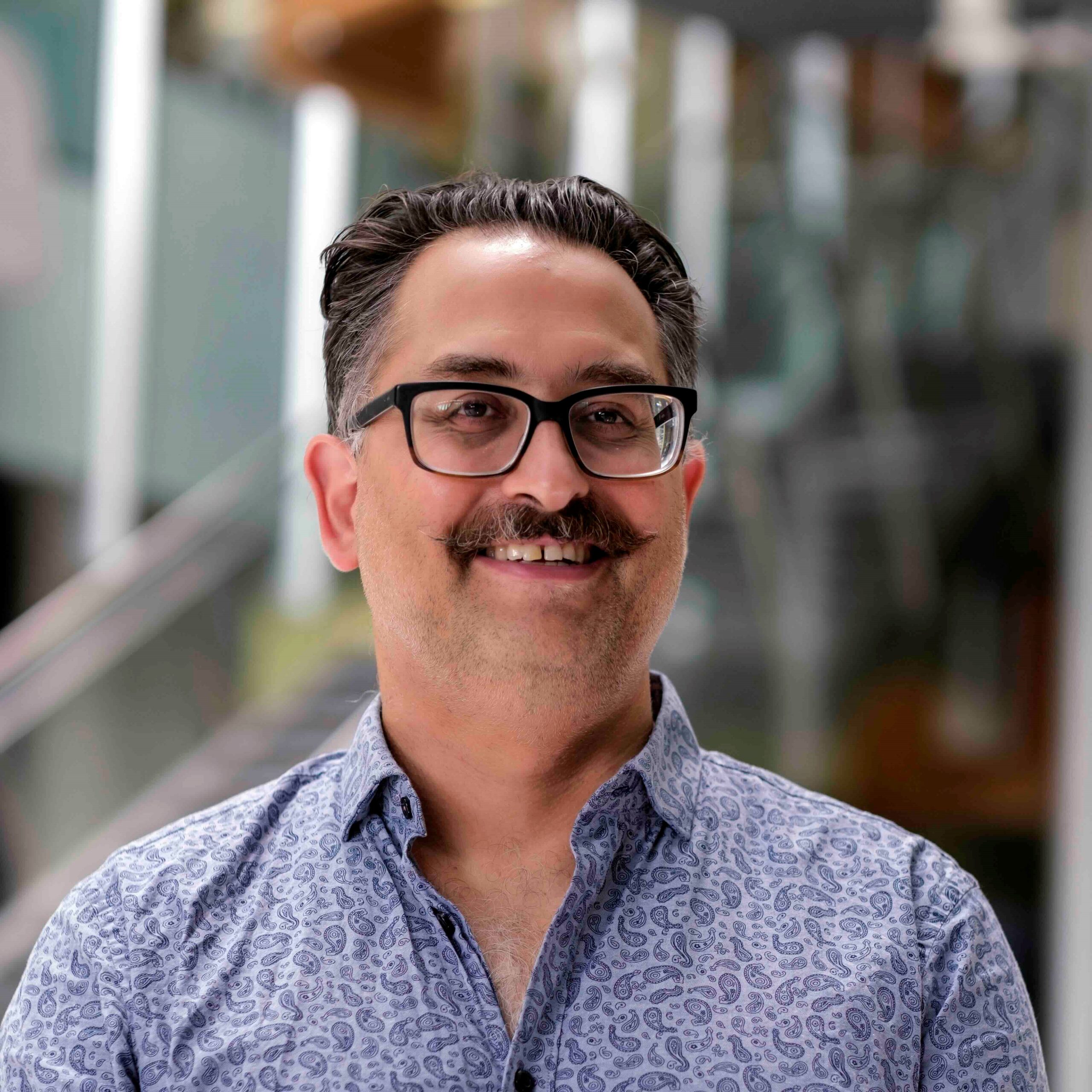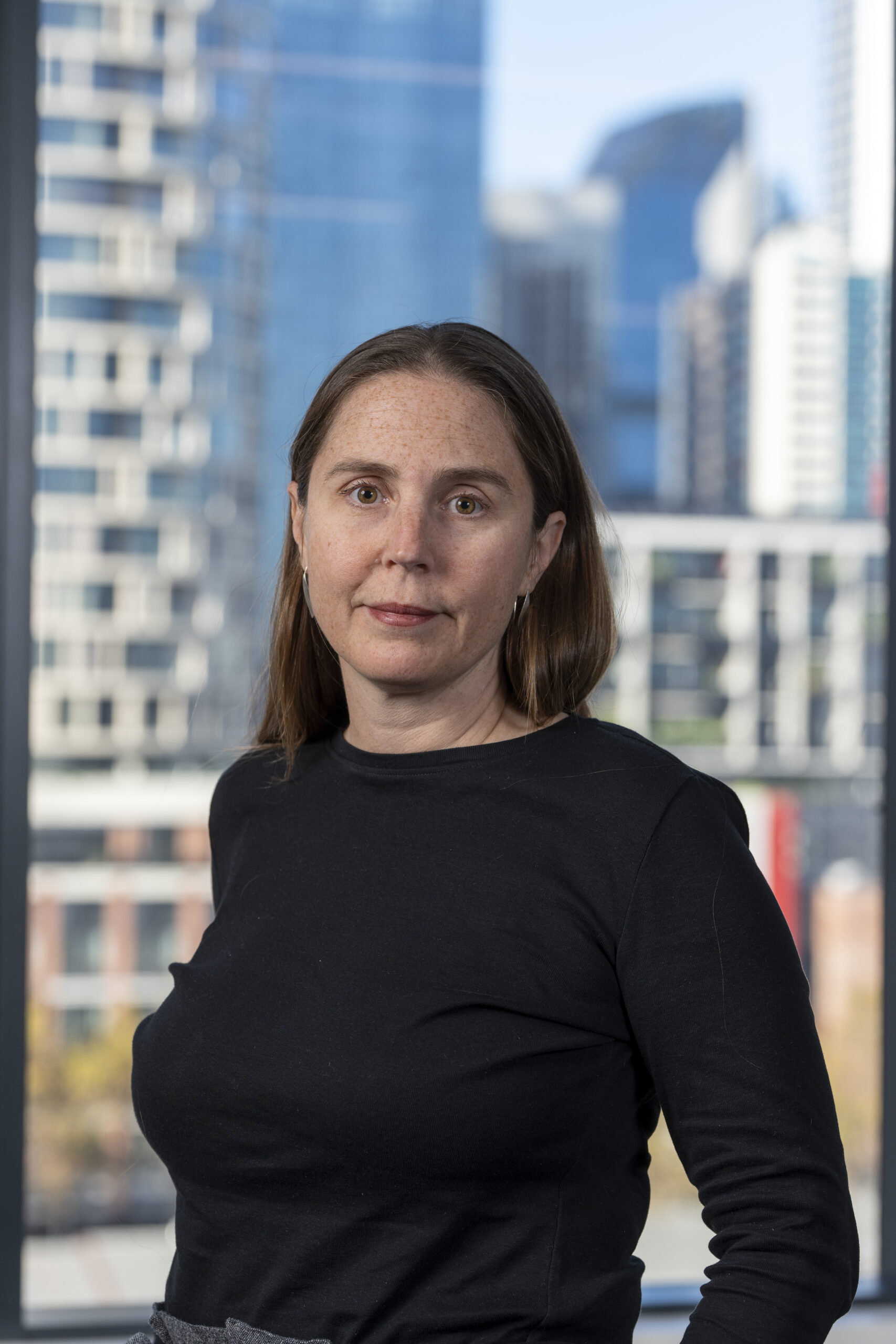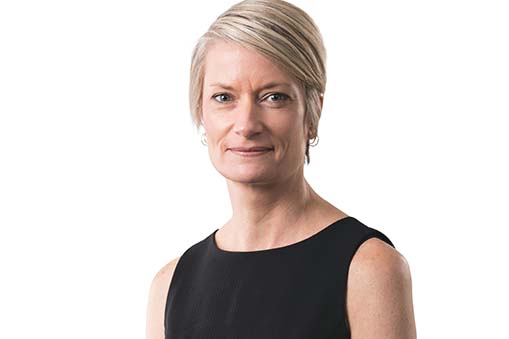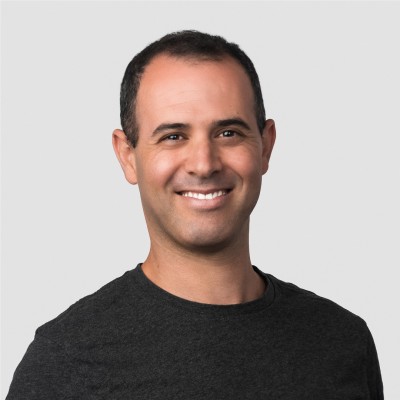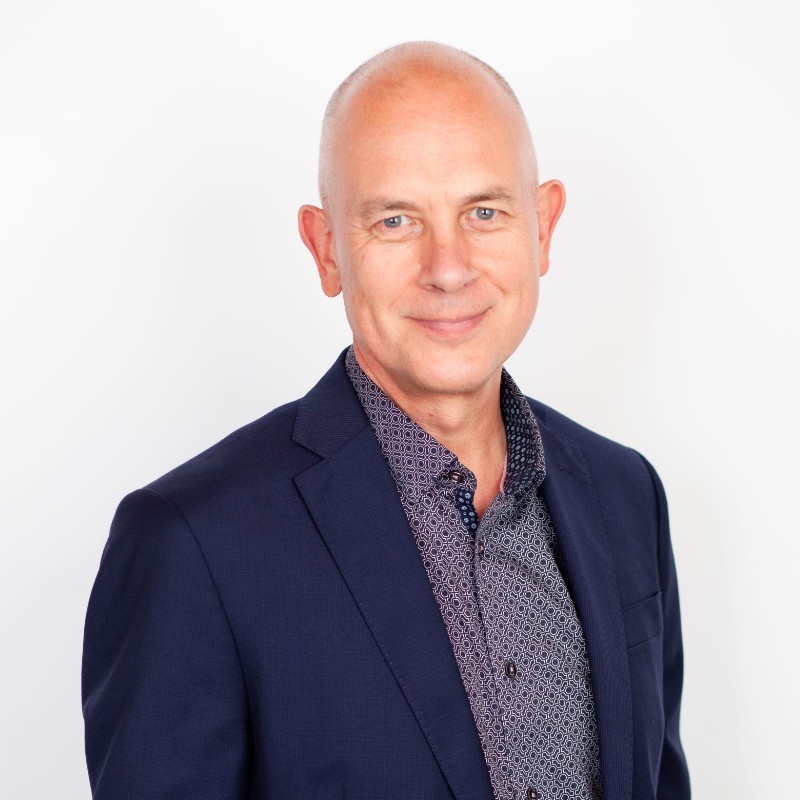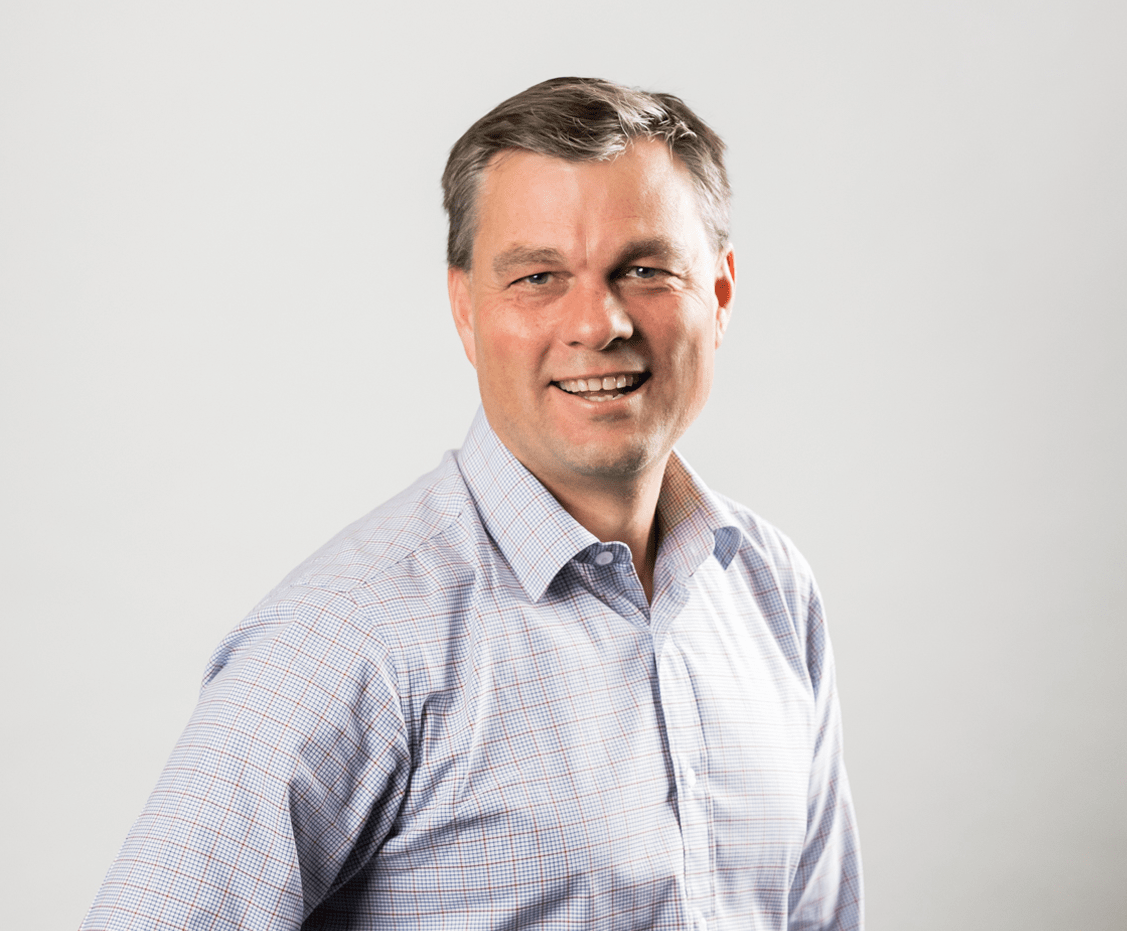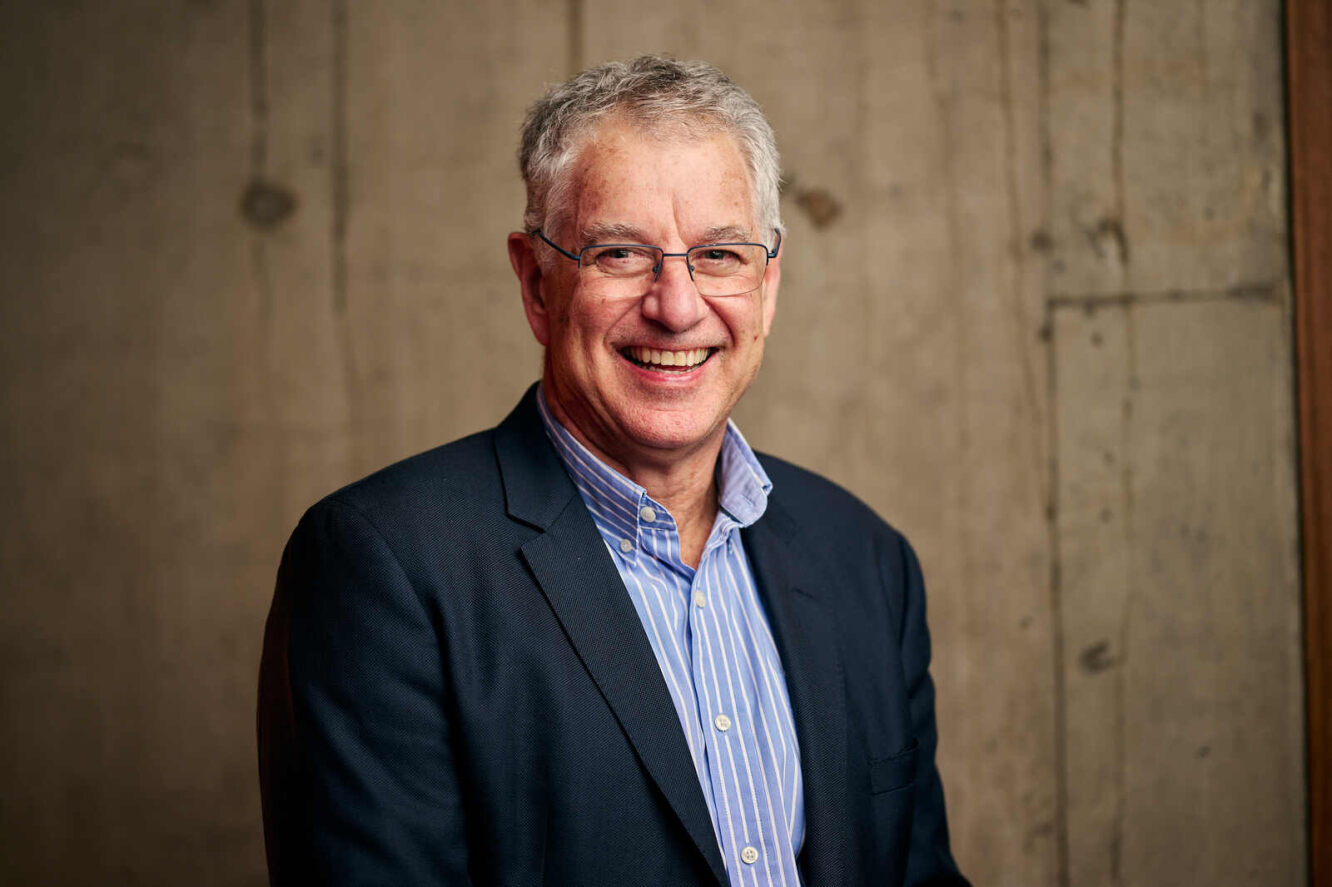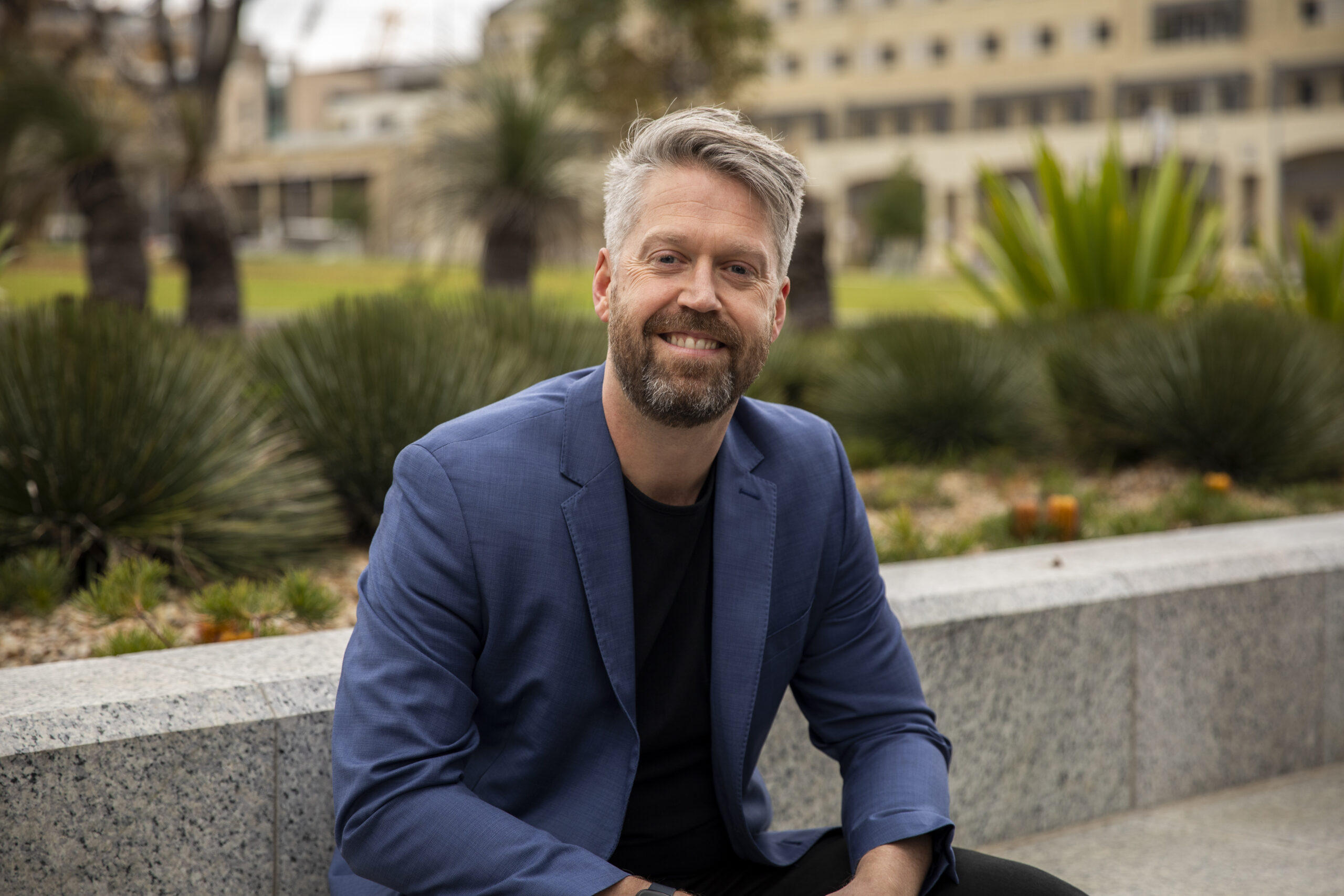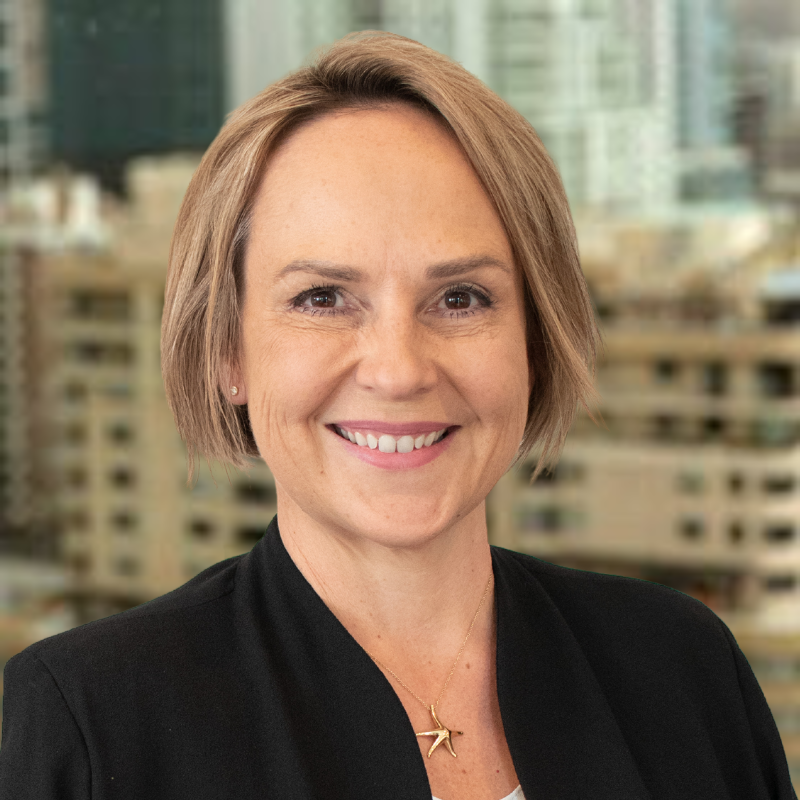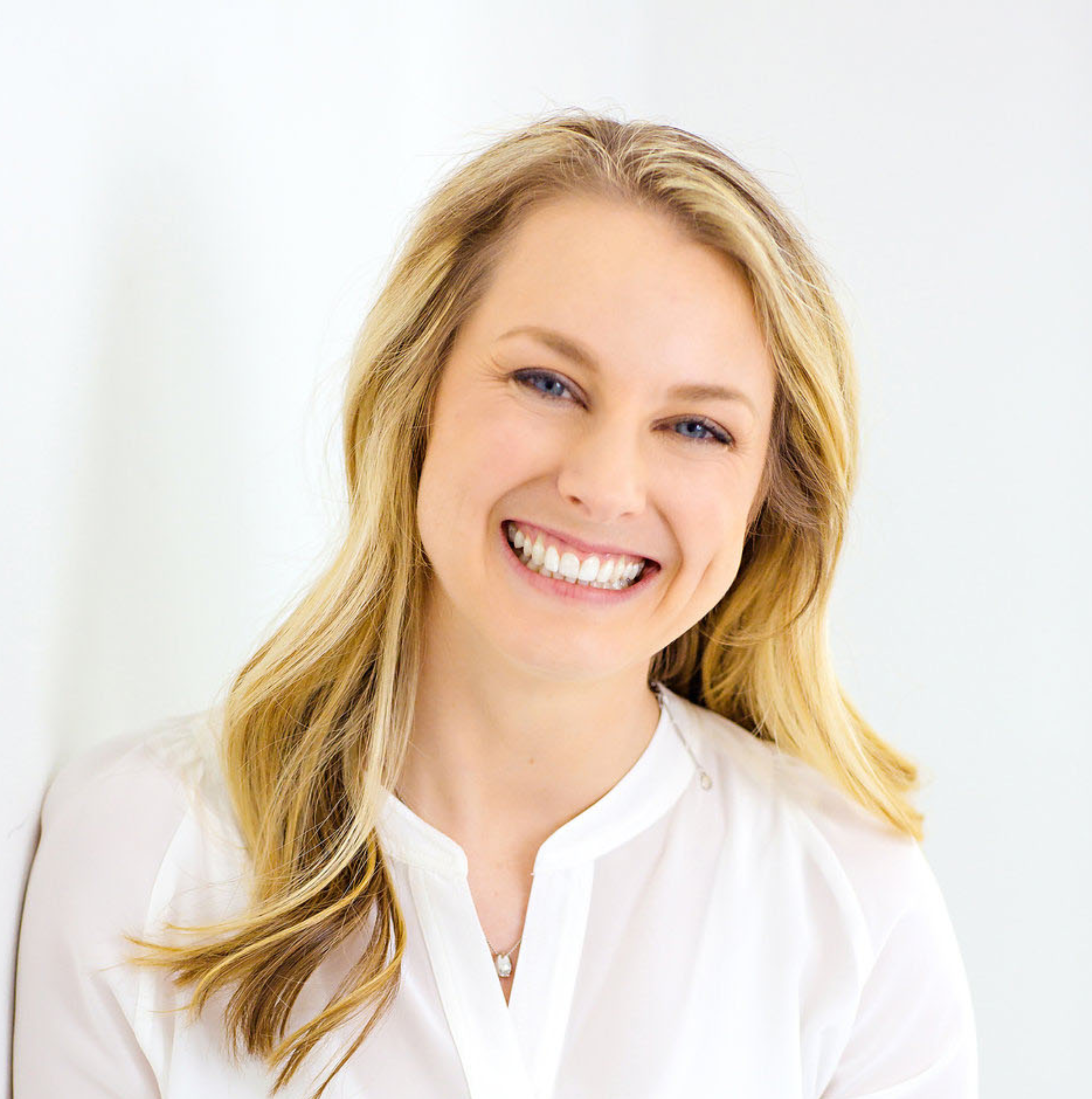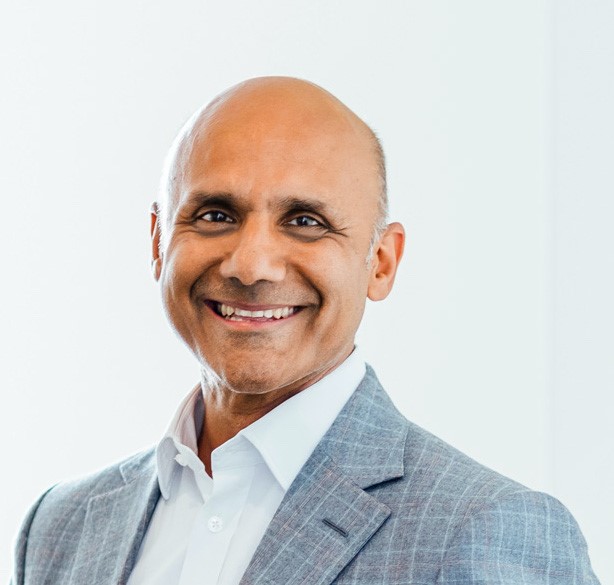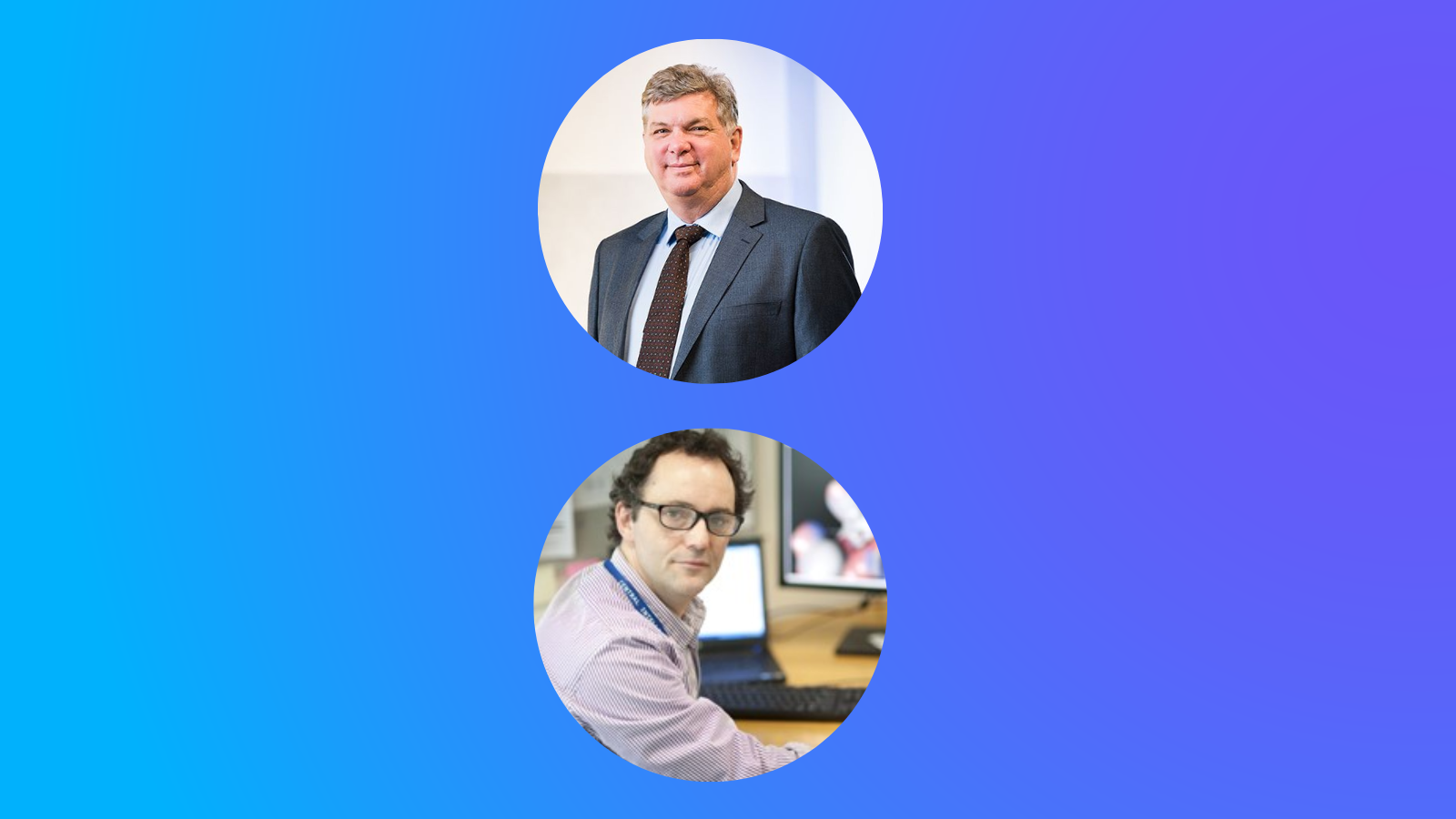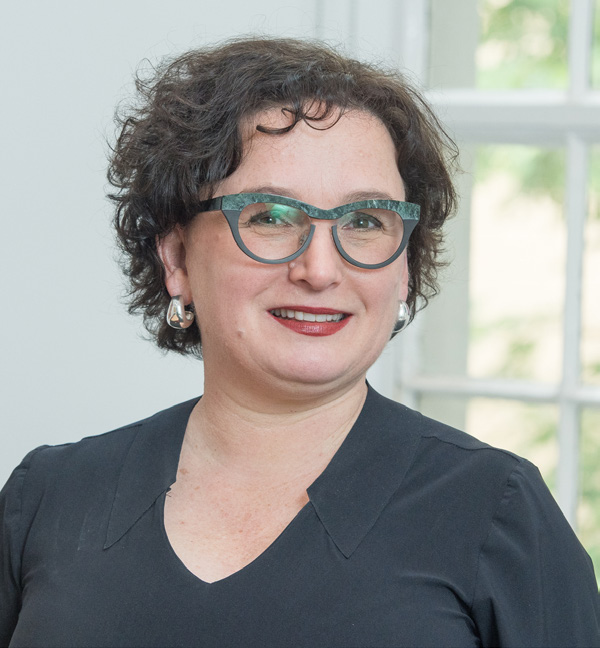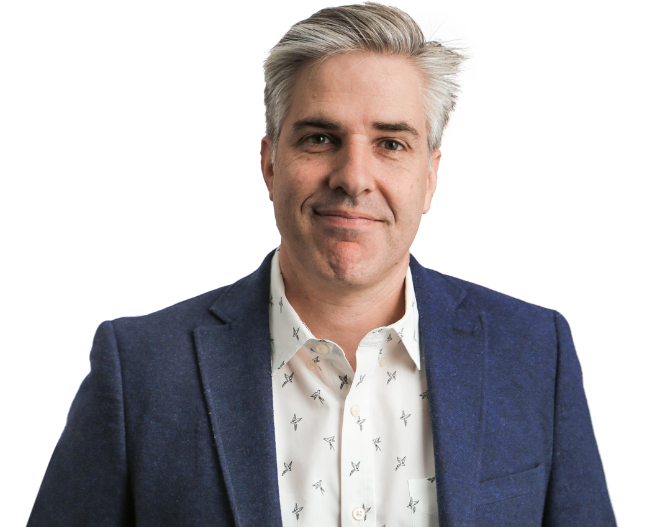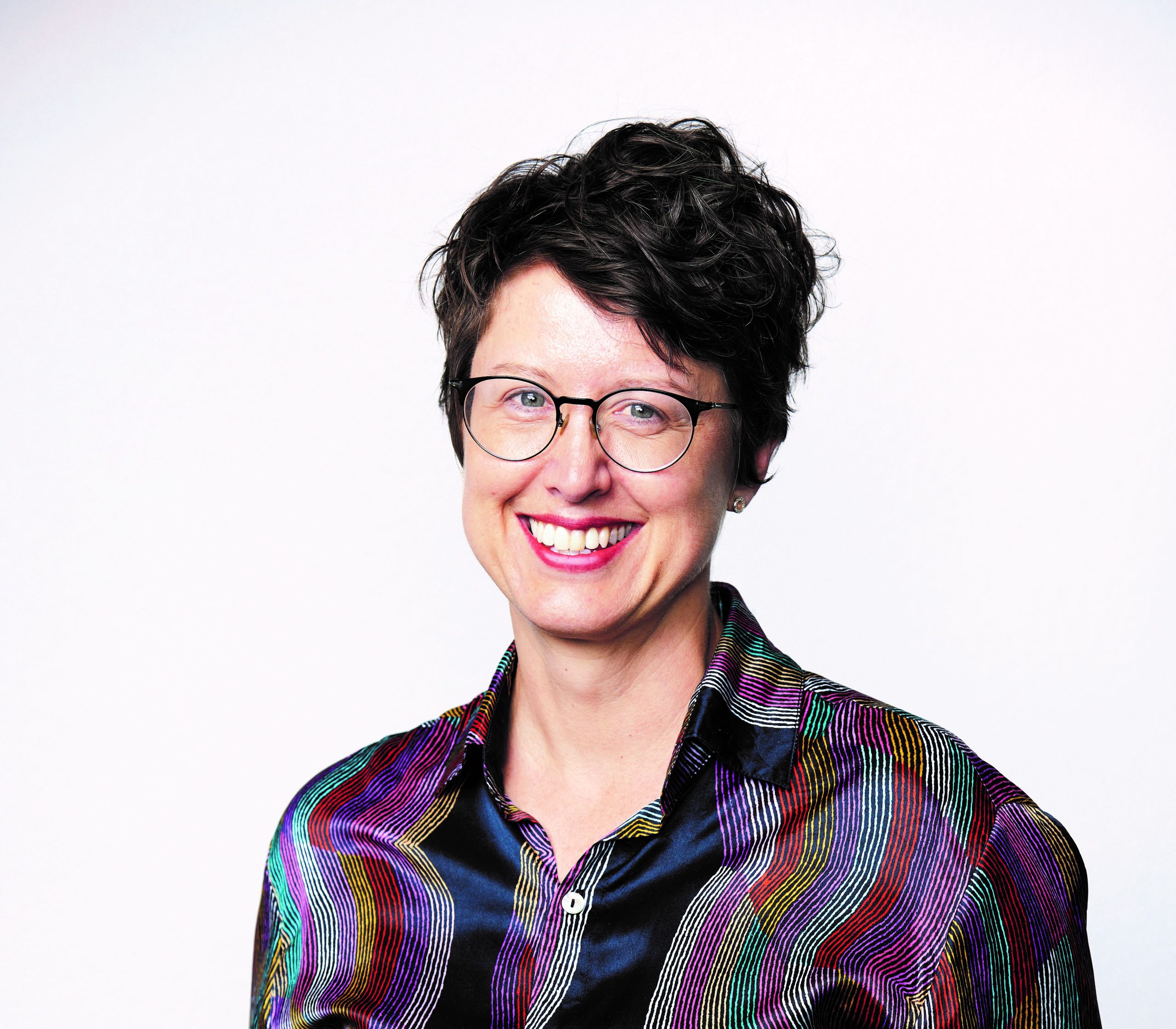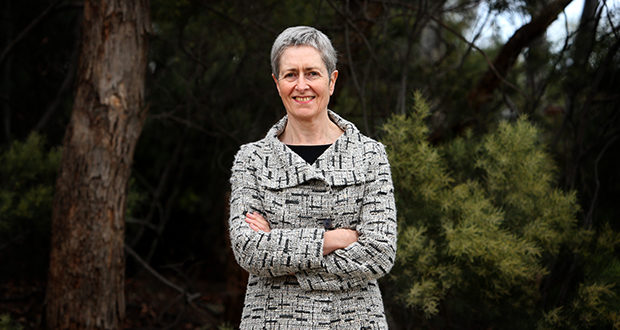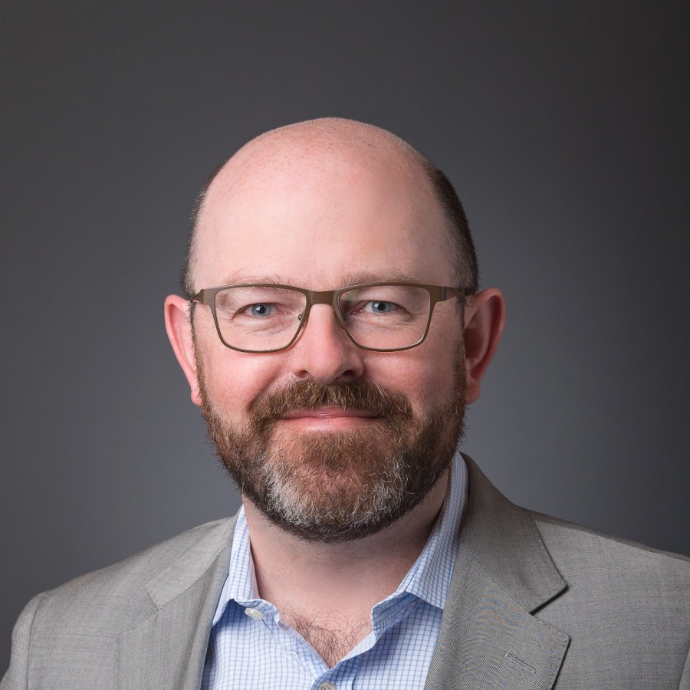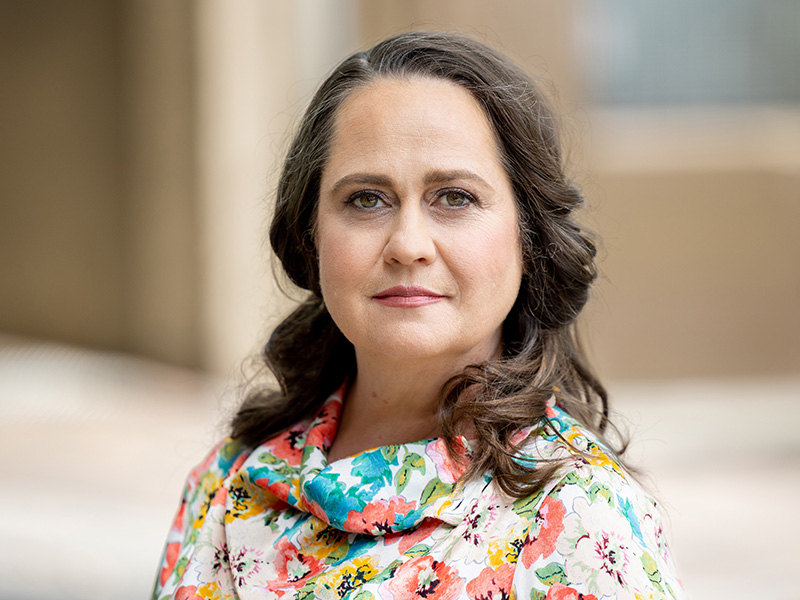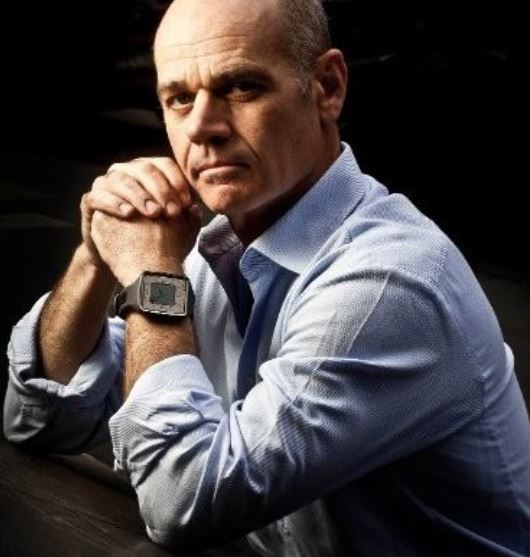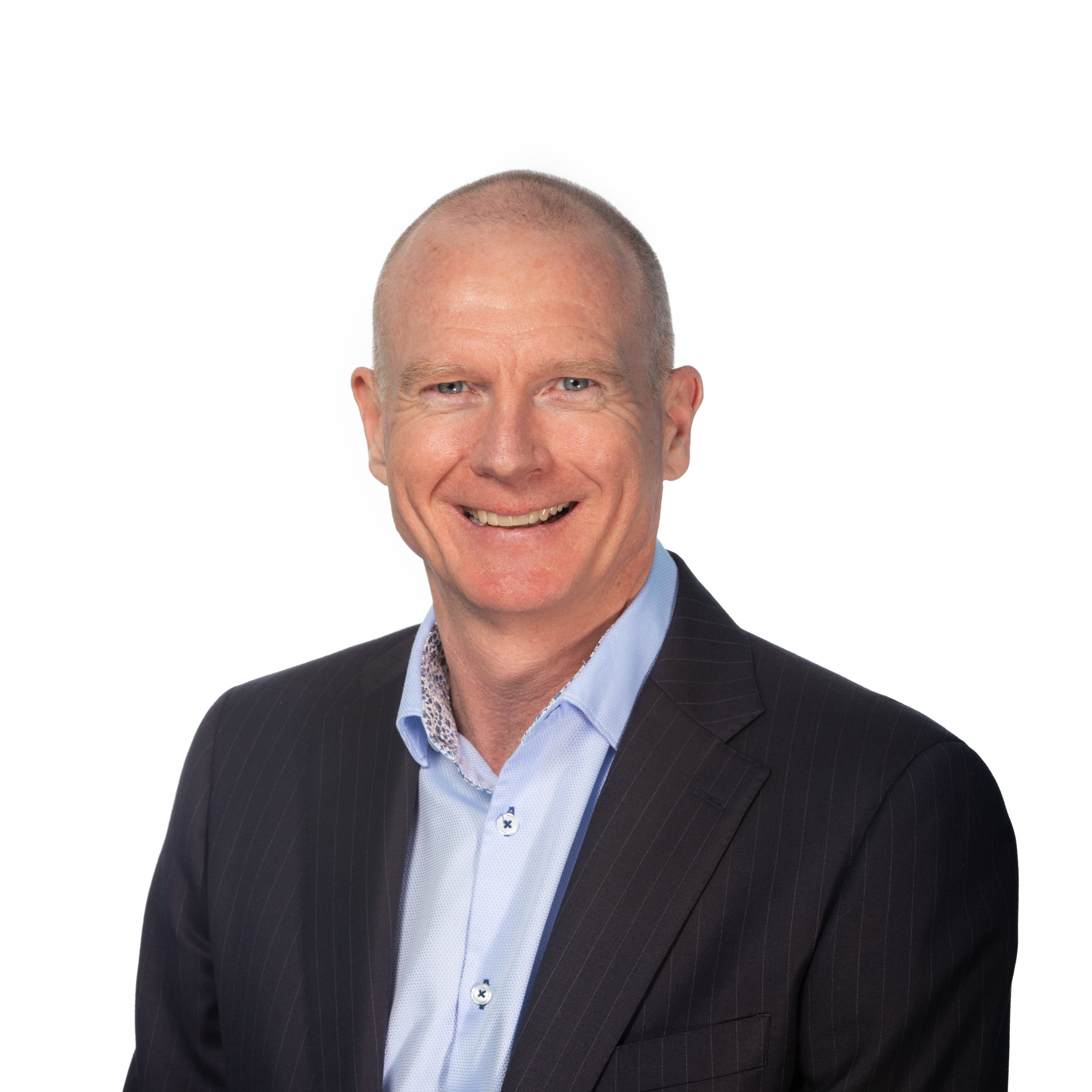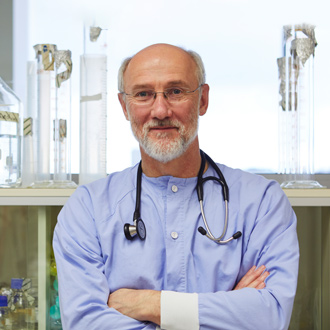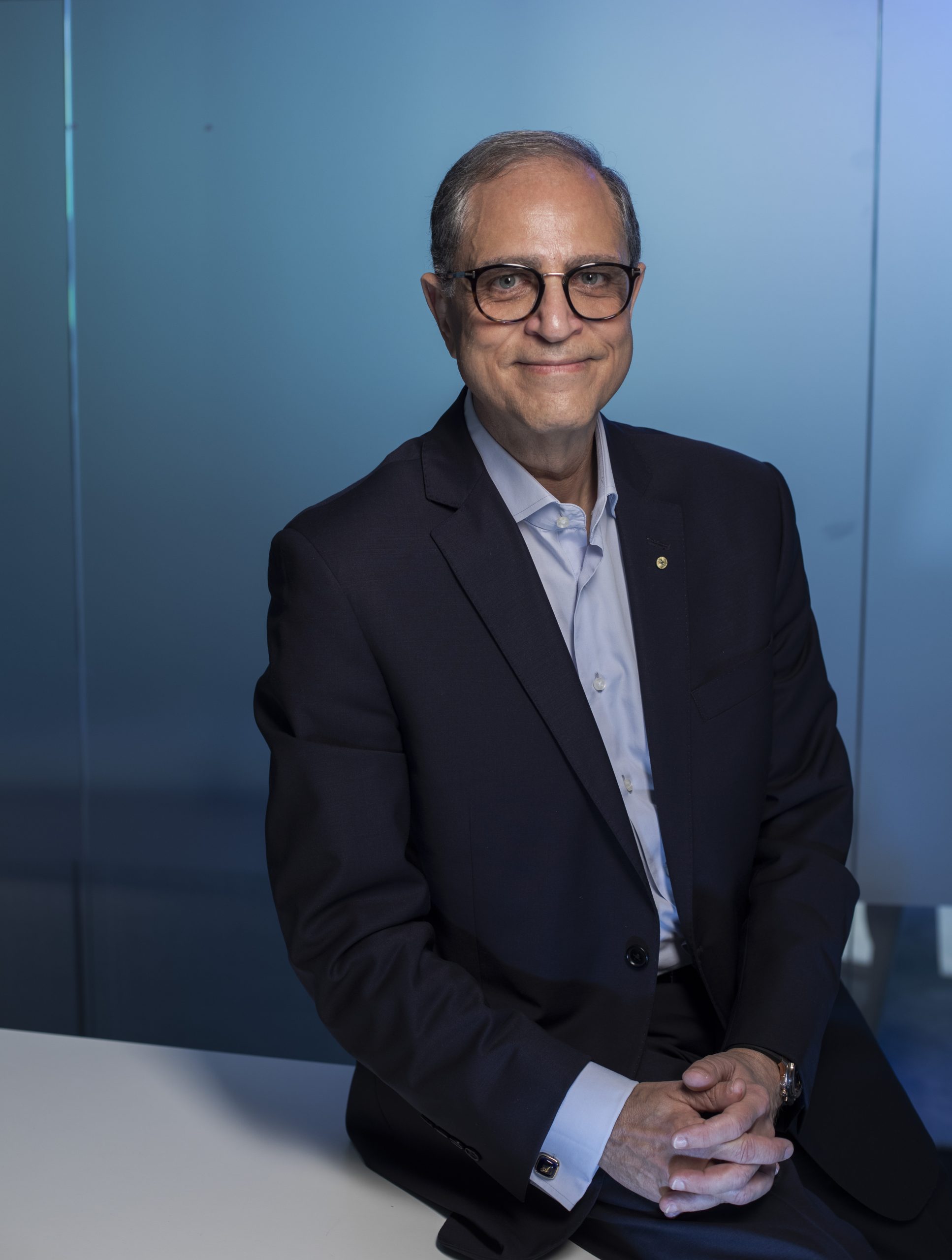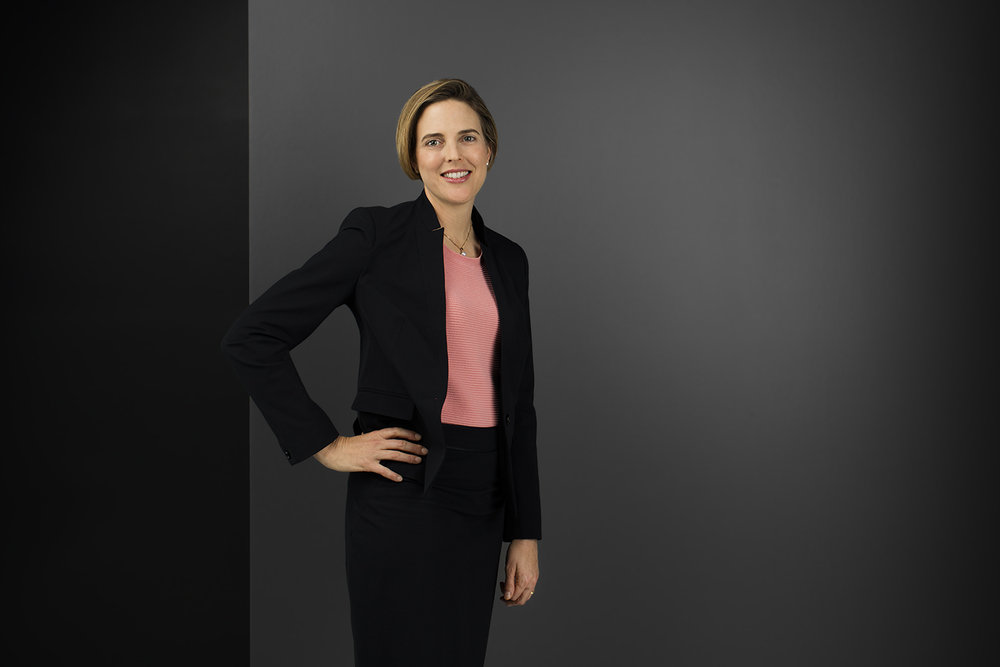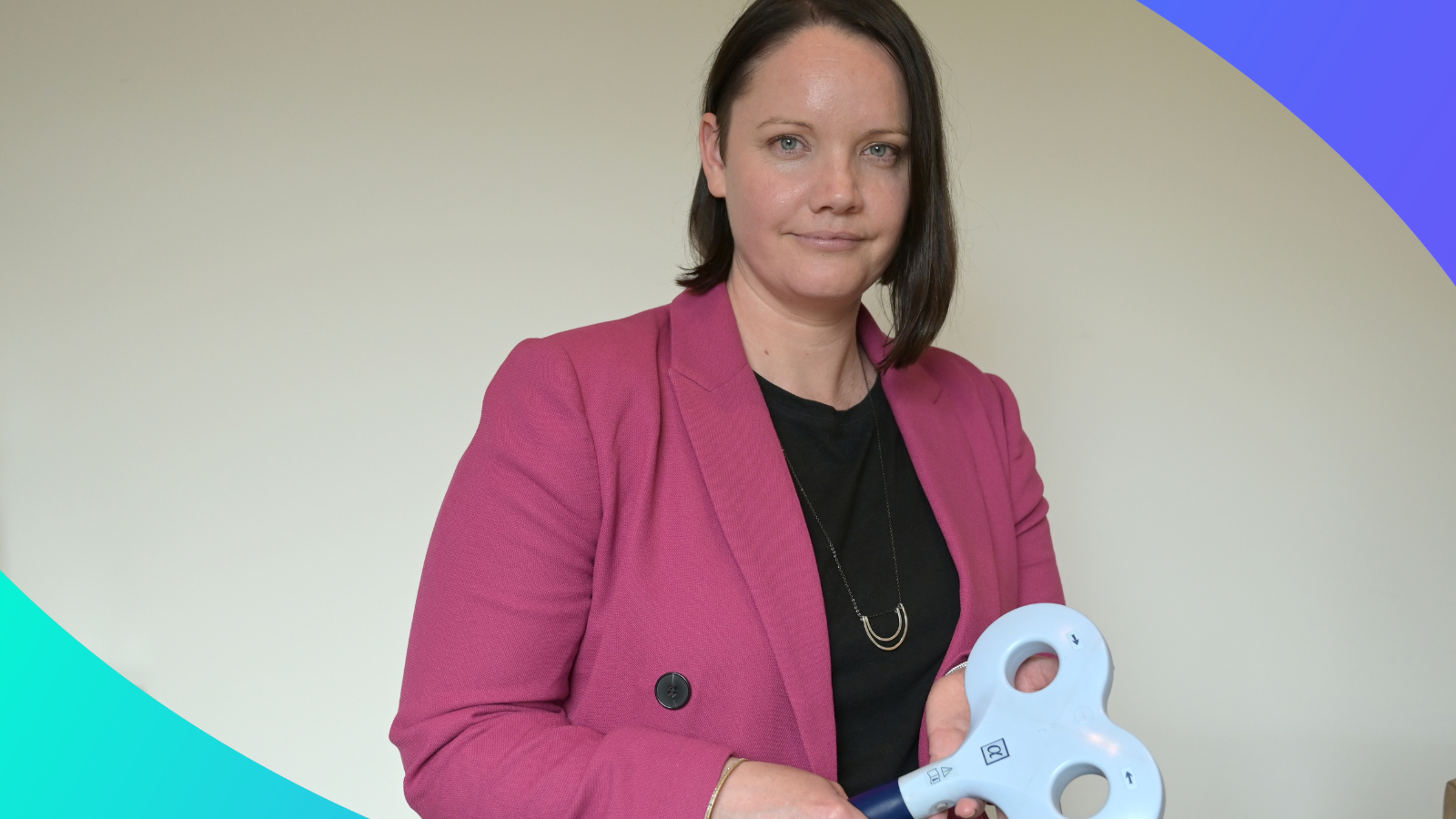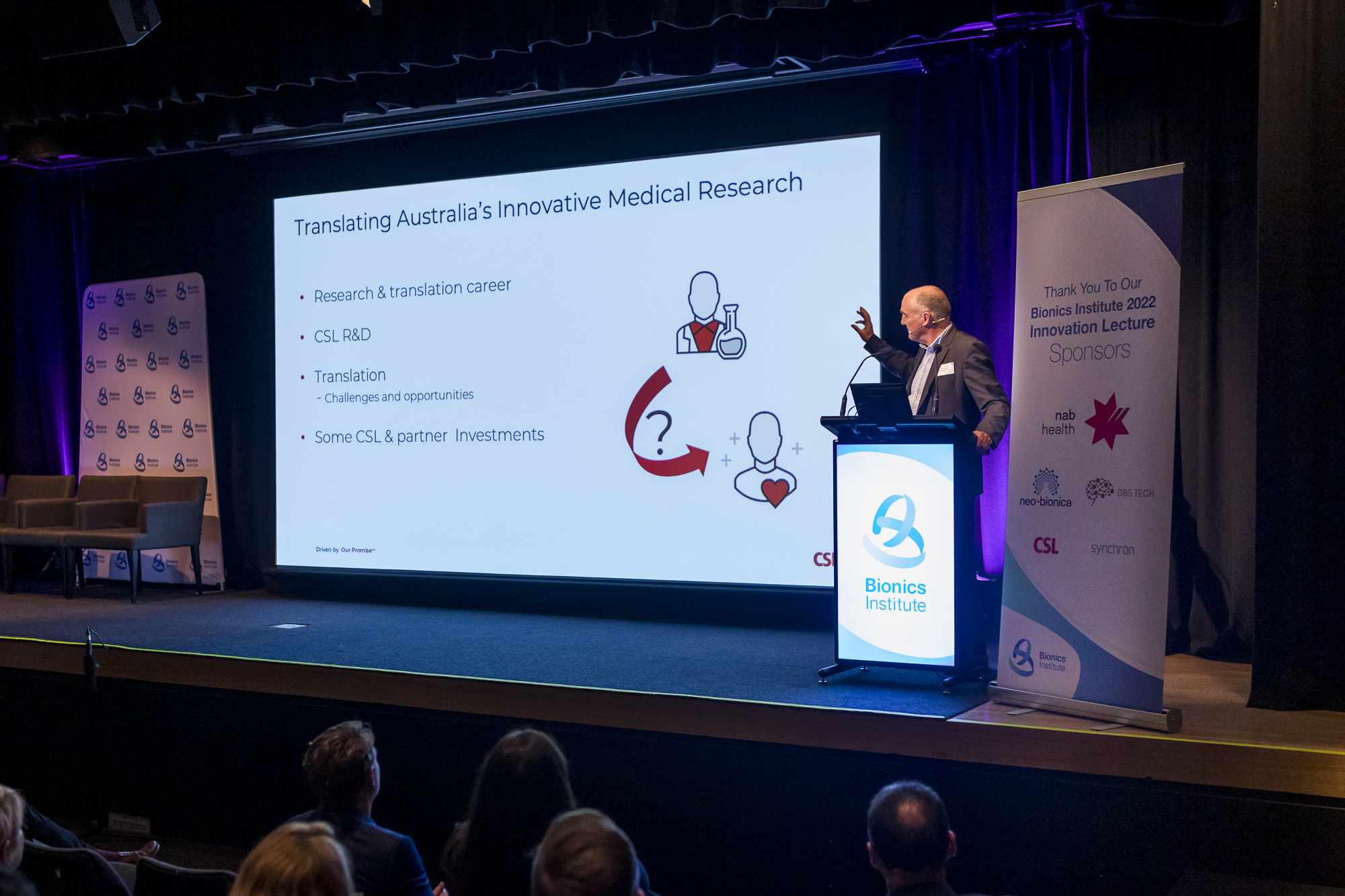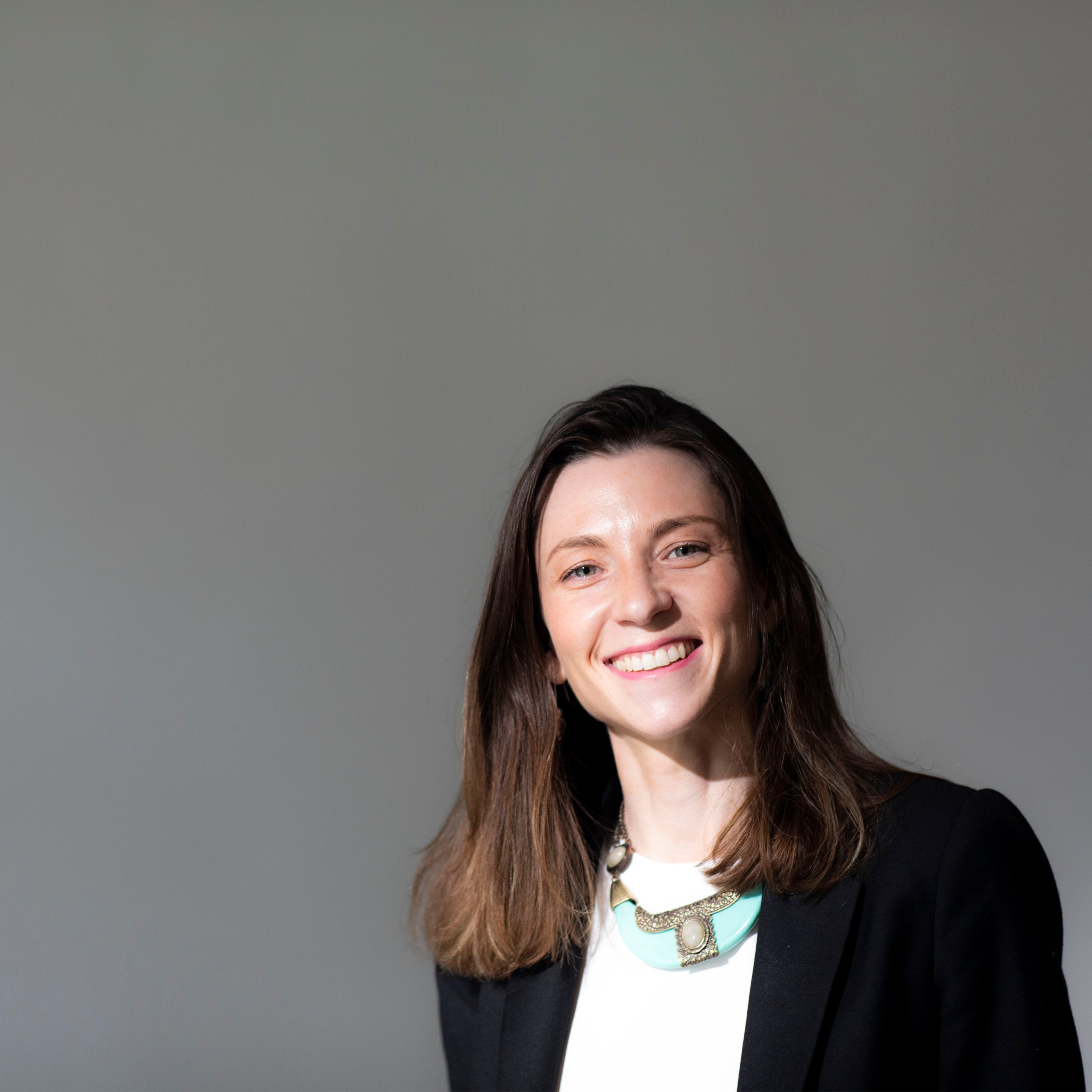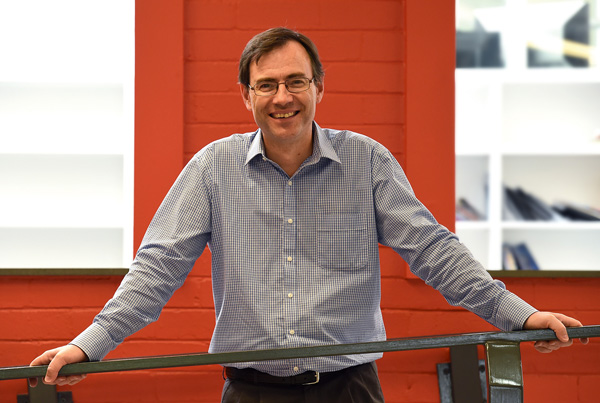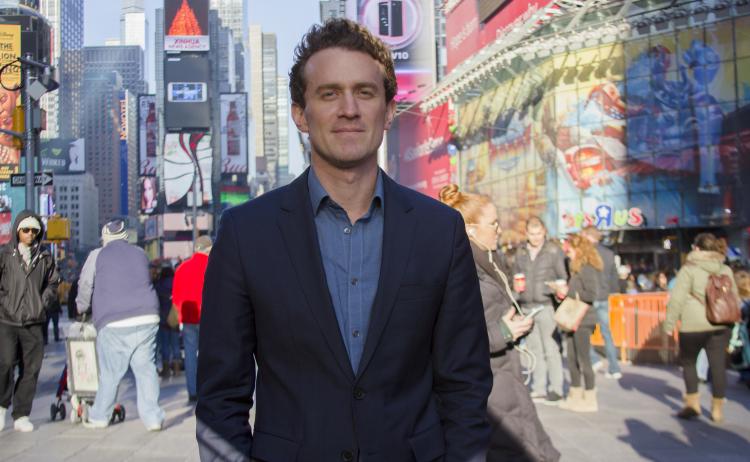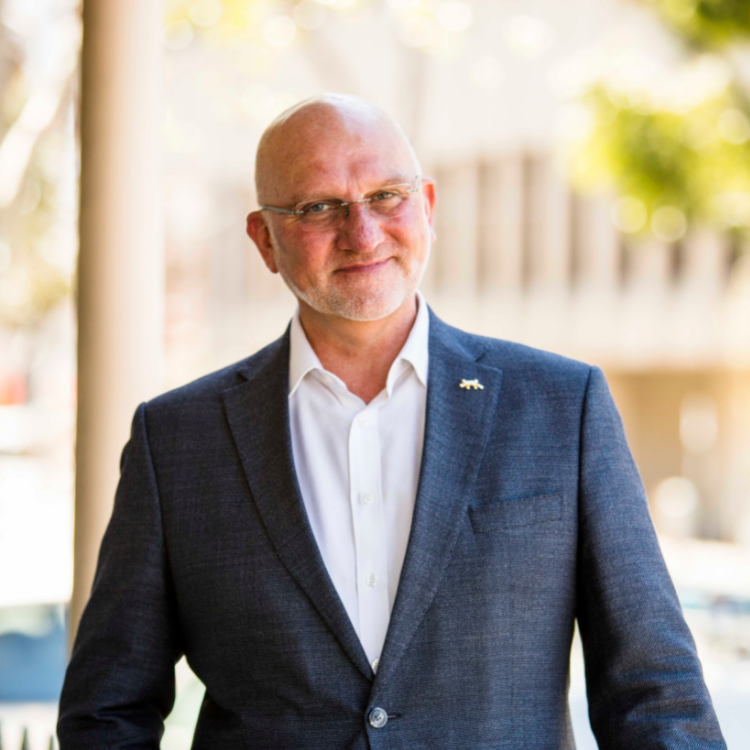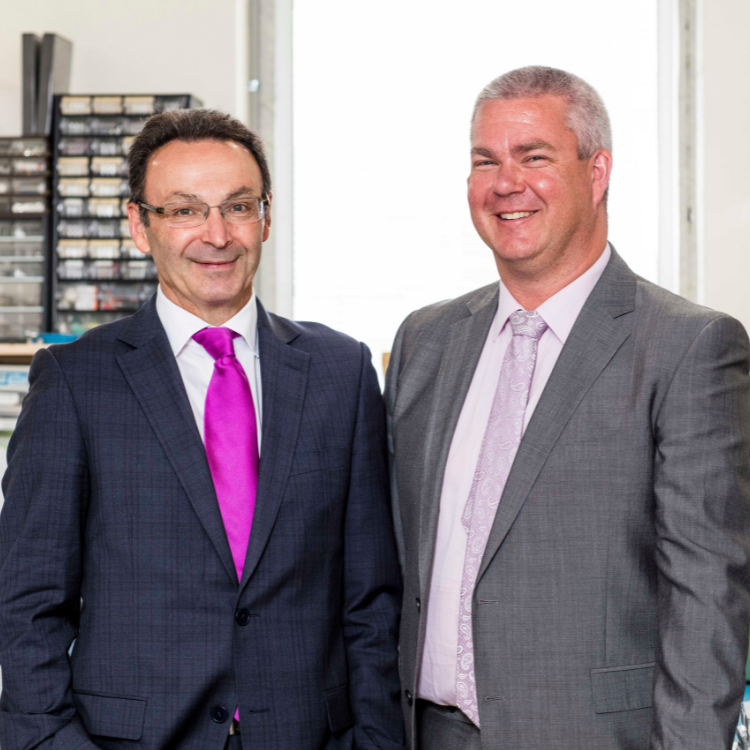Med Tech Talks
Investing in mental health innovations with Alon Greenspan

Alon Greenspan – Managing Partner, Mind Ventures
Mind Ventures is touted as the world’s first mental health-focused for-profit venture fund. Seeded by the Black Dog Institute, Mind Ventures invests in scalable, evidence-based solutions across the mental health spectrum, from illness to well-being.
Alon has a wealth of international global tech M&A and venture capital experience, having previously worked at Jelix Ventures, Herzog Fox, and Arnold Bloch Liebler. With degrees in commerce and law, he is also an active angel investor and start-up advisor.
In this episode you will hear about:
More information:
Discover more about Mind Ventures
Alon Greenspan [00:01:11] Great to be here, Robert.
Robert Klupacs [00:01:13] Alon, let’s start with Mind Ventures. Can you tell us about its mission in the realm of mental health innovation and its connection to the Black Dog Institute?
Alon Greenspan [00:01:22] Yeah. Mind Ventures is a mental health venture fund, and we focus on the intersection of tech in mental health. And we invest in all evidence based verticals across mental health to really solve the biggest problems in mental health. So Black Dog Institute is the seed money behind the fund and our key stakeholders. And Black Dog is helping us across four pillars. They’re helping us with market insights and mental health space and understanding what’s working, what’s not working, as well as due diligence in giving access to our portfolio companies, to their R&D to develop new treatments and new modalities, as well as commercial help for their businesses.
Robert Klupacs [00:02:06] Fantastic. How big is the fund, Alon?
Alon Greenspan [00:02:10] We are in the process of closing it. It’s going to be a $50 million dollars, to invest in early stage startups.
Robert Klupacs [00:02:16] Oh, wow it’s massive. Just now I was interested in looking at some of the stats. So the Australian Institute of Health and Welfare published recently that $12.2 billion was spent on mental health related services in 2021-22, up from 10.9 billion in 17-19. Clearly, mental health is one of the biggest problems faced by our communities. You know from your perspective and what your fund’s going to do, how do you identify and prioritise the innovative solutions within this space to address the most pressing challenges?
Alon Greenspan [00:02:50] Robert, there’s so many problems to tackle. In fact, it’s predicted to be the leading cause of death by 2030. We take into consideration the research in the field, the outcome of research, previous research in the likely to have high impact, as well as the business potential. I’d say the core focus is on identifying scalable and evidence-based solutions. For example, if a company’s developing a very innovative product but it’s not scalable might not be the right fit for us. And really, we’re trying to focus and leverage all the tailwind in the market that is across various aspects of mental health, whether that supply gap in the market between supply of clinicians to demand by patients, the hype ecosystem awakening from users and payers, and really all the technological advancement, whether it’s AI, VR, phenotyping, psychedelics to really solve the biggest problem mental health.
Robert Klupacs [00:03:47] Pretty diverse. A lot of work you’ll have to deal with across a number of different sectors there. By the sound of it.
Alon Greenspan [00:03:53] It is a pretty narrow vertical. There is a lot of innovation in the space, from clinical illness to, subclinical to wellbeing. Really those are the three verticals. But there the common thread is that there is a horizontal layer below it, which is the technological advancement to put some scale behind these very important solutions.
Robert Klupacs [00:04:15] Got a series of questions. And that’s sort of the nice segue way, because you’ve got a very diverse background yourself going all the way from tech M&A to venture capital and also angel investing and now health innovation. Just generically, and you sort of touched on that before. How do you see the intersection of technology in particular and mental health evolving? And you mentioned quite a few things earlier. And what opportunities do you see for further innovation in this space, particularly from the Australian perspective?
Alon Greenspan [00:04:43] Yeah, that’s a really good question. So I touched on the tailwind. But really the way we think about it is that the the latest advancements in mental health are pretty akin to where we were 50 years ago with physical health, where people didn’t know that they shouldn’t smoke and they should exercise to live longer. And then we doubled down on cancer research and personalisation of treatment. We see a similar, similar tailwind in mental health. We need to do more research, and we really need to leverage technology to scale it and drive innovation. And that’s really the future of mental health. There’s a lot of opportunities across the board for traditional treatments and putting some skill behind them. Experimenting with step care to vertical SaaS for clinicians and all the way to the more crazier stuff like neuroplasticity, neuroscience, psychedelics, and obviously, AI is also changing the market.
Robert Klupacs [00:05:37] Is it? There’s a lot going on change and it’s happening seems to be happening very quickly. I’m interested,
Alon Greenspan [00:05:42] Incredibly.
Robert Klupacs [00:05:46 Yeah, I’m interested in talking about you, as a matter of fact, because – fascinated. When we did the research on you, particularly about your experience as an angel investor and start-up advisor. We’ve got a lot of listeners who are fascinated to know how this whole process works. And could you explain how you see the role of an angel investor fitting in the investment landscape, and how start ups should engage with them? And then from your personal perspective, how do you assess what something’s worth investing in, particularly as an angel?
Alon Greenspan [00:06:12] Yeah. Angels are incredibly important to any ecosystem. They’re really… the job is to get the business growing. VCs – depending on their mandate – might invest early or later. But angels are the ones that should have the higher risk appetite and can come in and get their hands dirty and help start ups. They don’t have funds to return. They’re not fund managers. They’re usually people who are passionate about a particular project and are trying to help out. Without angels you’re forced to probably bootstrap, which can be pretty challenging, especially in health care. In some sectors, it’s easier to bootstrap. I think it’s pretty challenging, given all the challenges and regulations in the space and research that you need to have. Angels also typically bring their expertise to the table, and aside from capital, they can also open doors and help you with strategic decisions. It can be mentor and advisor. From an impact point of view. I guess the way we try to assess it whether or not companies are improving mental health outcomes. It’s really part of our assessment process, alongside the more traditional venture assessment tool. The way we think about it is that for most venture funds, it’s the team and dream; and we have another layer of evidence on top of it, and probably a mini layer of impact assessment on top of that as well.
Robert Klupacs [00:07:35] Yeah, I think this is a lot – hopefully our listeners got a fair bit of that because we’ve spoken to professional venture capitalists and they’ve said something similar, a little bit more nuanced, and you’re coming at it from angel investors pretty much like to be very hands on. Some founders and entrepreneurs we know baulk at that. But from your perspective, if you had a choice of taking money from an angel or bootstrapping, what would you do?
Alon Greenspan [00:07:58] That’s a really good question. The beauty of bootstrapping is that if youre showing and you don’t have anyone else on your share register, if it comes down to whether or not you can find smart money and folks who share the same vision of you as you, having investors on your cap table, which are are not aligned with your vision, can be a bit challenging. So the dream is to find angel investors who get it and can help out, but also share the same vision as the other founder. And then giving away some of your equity might be a better decision than keeping it all to yourself, because you can drive a lot of value out of it.
Robert Klupacs [00:08:37] Yeah, good advice, good advice. One of the things we love doing on this podcast is talking about case studies and successes that people can can realise that it’s not all doom and gloom. There are success stories that people can point to. Love to know about some of the successful Start ups that you’ve been involved with, particularly impactful Start ups across your career, not just in the mental health space and in recent times, but just generally across the last 20 years or so.
Alon Greenspan [00:09:04] Yeah, I get asked this question a lot. You can’t imagine. And I really don’t have a favourite child. To be honest, it’s very hard for me to give one example, as all of them are impactful in different ways. I’m a firm believer that if you’re a successful founder, if you’re building a successful company, you must be making some type of impact. Otherwise, you wouldn’t have had the success with your employees, your customers, your investors, and your broader stakeholder base. I guess from my point of view, I’m a big fan of increasing accessibility and affordability. I invested in affordable legal services for lower income families through more accessible salaries, the more affordable education and affordable energy. And I’m still looking to invest in companies who can make mental health more accessible and affordable, and in some ways also reduce stigma all while fitting into our venture lenses, which can be a bit challenging at times.
Robert Klupacs [00:10:00] I know you haven’t got a favourite, but just give me a little bit of a case study that my my, my listeners can look up perhaps.
Alon Greenspan [00:10:07] It is hard for me to give you one. Robert.
Robert Klupacs [00:10:10] I’m sorry, I know.
Alon Greenspan [00:10:12] Different VCs have different views. I, I guess I’m a high conviction investor, and that’s how I operate. So when I invest, I have high conviction that this business is the best business in the world. And that’s how I feel that all of them in different journeys with different founders. I hope that answer the question.
Robert Klupacs [00:10:30] Probably not, but I’m going to get my listeners to look you up, and I’m sure they’ll be able to see what you see. Like there’s high conviction investments that you’ve made. One of the things we talk about in this talk is, you know, how innovation happens, and you’ve been a close observer to that. And particularly collaboration is often key in driving innovation. Where you are coming from now, how do you approach partnerships and collaborations within the mental health sector to foster the innovation and, more importantly, make it accessible and portable and usable? Because I think that’s what seems to be the key points of what your fund is trying to do.
Alon Greenspan [00:11:04] Yeah. My approach to business is to build a long-term relationship. So every collaboration should be seen as a partnership in my view. It’s not a one-off relationship. It should be a long-term relationship. So each one is different. But the common thread is that they’re all interested in some type of an outcome, whether it’s a revenue outcome, distribution outcome, marketing outcome, research outcome, funding outcome, etc. I like to separate them into two: the for-profit ones and the not-for-profit ones. We have a lot of stakeholders and obviously our key stakeholder, a not-for-profit medical research institute. The partnership outcomes are different with not-for-profit compared to for-profit. So with the Black Dog Institute, we’re more focused on innovation and research and less of the scaling of the business solution or distribution per se. We try to understand what makes it work for the Black Dog, but also what makes it work for us. We have a partnership that we have in the ecosystem. It’s slightly more commercial, whether it’s the flow or distribution of clients or reputation. So we try to approach different partnerships with different lenses.
Robert Klupacs [00:12:20] You’ve been seeded by a not-for-profit entity, the Black Dog Institute. Know I don’t think it’s very common, I’ve not seen it anywhere myself, around the world, let alone Australia. Do you see that as something that other not-for-profit entities should be thinking about? About how they engage with venture capital, like yourself to actually get better outcomes of their research? Or is it because we’re all so tight with cash that not everyone can do it?
Alon Greenspan [00:12:46] Yeah, it’s a great question. I’d love to see more. And I really want to set the example of it. There is a lot of collaboration, but really the missing pieces, the missing pieces are the commercialisation. There akin to product development where you do all the research and the product, you chat with customers, and then you chat to your sales team to understand how to sell the product. We really want to be that connector between research and commercialisation, to do it in a way that is very scalable and impactful. I’d like to see more not-for-profits to do it – it is a big commitment, and hopefully they’ll be able to follow in our footsteps if we do a good job.
Robert Klupacs [00:13:22] Do they, they sort of set a timeframe in which they want to get some return to be able to put back into the, you know, their operations or will they basically say, look, we’re going to allocate some of our money because this is a really important thing to do. Is it is it very commercial in mindset or is it they just want to bring you in and realise they need to get you started. And they put no expectations of money coming back.
Alon Greenspan [00:13:43] Look, every non-for-profit is different. Different outcomes and different strategies. We are a ten year fund. Which is a typical venture time frame. We invest over the first five years and then look to drive return between year 6 to 10. That is really the model given we we do parallel investments, and I’m not sure if there are any other ways to do some venture. But yeah, it comes down to the strategic alignment and outcomes for not for profit.
Robert Klupacs [00:14:14] Oh, good. I mean, we spoke about your your favourites before, but one of the great learnings, I think, for anyone is from wanting to better turn: values. Most venture investments don’t make it as we know. But just for our listeners, you know, from your perspective, you’ve been around this industry now for quite a while, and everyone goes into these things with the best of wills and the widest of eyes. If you were to sort of think about it a bit and tell me the things that have gone wrong. What have you learned that then you’ve subsequently used to think next time. Is there a common thread, or is there always different things that go wrong?
Alon Greenspan [00:14:52] Yeah, it’s a great question, Robert. The CEO of Nvidia, Jensen Huang, said, unfortunately, resilience matters in success, and I hope that you will suffer. Yeah.
Robert Klupacs [00:15:06] Yeah.
Alon Greenspan [00:15:07] I’m a firm believer that the best way to learn is having scars. And when you’re working with many early stage start ups, you get a lot of that. For me, it’s it’s not one scar, but rather the combination of all the various learning that shaped my approach. I’ve worked with companies with good product market fit, who couldn’t scale, and I work with founders with innovative tech solutions who failed because it couldn’t find product market fit. Really, the biggest learning for me is that the number one priority is team, and that’s the number one indicator for success. And based on my scars over the years, I really look for what I call the five ‘Hs’. I look for hunger, look for this relentless drive to succeed and push boundaries. I look for founders who can hustle the ability to execute with agility and determination. I look for humble founders, remaining grounded, open to learning, and willing to adapt. That is incredibly important. And leave their egos aside. I look, I call it the heart. Looking for founders that are transparent. They have high emotional intelligence and authenticity in their mission, vision and leadership style. And then the last one I’m looking for honourable founders – in Yiddish called ‘nensch’. basically embodying integrity, ethics and being mensch in every aspect of their business life, in in life outside of business with their stakeholders and employees and investors.
Robert Klupacs [00:16:40] That that’s gold for us. And I think for everyone listening to this podcast that is just synthesising probably the last 25 we’ve had those five Hs that you say that’s gold for people realise sometimes I think it’s just the tech, but it’s what you’ve said, it’s the person. And it’s not all about the biggest ego that’s going to be successful by the sound of it. So that’s fant – thank you very much for that.
Alon Greenspan [00:17:04] I appreciate it.
Robert Klupacs [00:17:05] I wanted to sort of pick up on your world expertise here. The topic that we always talk about is how do Australian entrepreneurs get funded, particularly Australian venture capital versus the world. There’s you know, there’s bits and pieces. People saying, oh, Australia’s not as good as, you know, states or Europe. But from your perspective, how do you compare the Australian venture capital market versus what’s happening in the US and Europe and now Southeast Asia, compared to what in Australia? Because we had differing views on this. Particularly, we’ve had venture capitalists in Australia saying, no, we’re pretty, we compete, we’re as good as anyone else, and maybe the people the technology here is, is good. We’ve had technology founders on the other side saying, oh, they don’t get it, there’s not enough money. So just be interested in your world view of this because you’ve you’ve worked all around the world.
Alon Greenspan [00:17:55] Yeah. Listen, I think I disagree with the statement that the risk appetite is lower. We do have amazing founders here. We have amazing tech in Australia and we’re punching above our weight. And the success of the start-up ecosystem over the last 15 years actually shows it. I’d say there are two elements to it. One is the fact that there there’s just less early stage funds in Australia versus the U.S. so typically they’re just less to capital. It’s more of a general statement, but more in relation to med tech – you have less specialised funds, and we’re one of the only ones around here that focuses on mental health. And then the second one is the fact that it comes into the economics of VCs. One of the considerations in the size of the market. We obviously follow parallel. That is that 20% of the portfolio will return 80% of the portfolio. Some more companies will fail. But to be able to achieve a return to we’re after we need to each portfolio company needs to have the potential to return the funds. So Australian start ups – especially in the med tech space – typically start by focusing on the Australian market, it’s closer. Understand it better. There’s actually more and more pathway for innovation. However, if you compare to the size of the U.S. market, it is much smaller. So it’s a bit harder to build a conviction that you need to – and VCs in the US have naturally a much bigger market than their counterparts in Australia. And unlike fast companies who are global from day one. It’s a bit different in med tech, so I’d say it’s more of a question of alignment on the vision and pathway to success than the actual risk appetite.
Robert Klupacs [00:19:43] It’s good feedback and very fair feedback, I think. Just a couple more questions before I wrap up, because I know you’ve got limited time. One of the key things that we like to focus on in the podcast is how did people find their way to where they did, and particularly who were they mentors along the way? And I’d love to know from you who your mentors were that got you where you are. And for any aspiring venture capitalist or or entrepreneur, how they should go and find the right type of mentor for themselves?
Alon Greenspan [00:20:14] There’s so many. I know it sounds corny, but it’s probably my dad who probably had the most impact on me.
Robert Klupacs [00:20:20] Yeah.
Alon Greenspan [00:20:21] The reason is that, I’m a visual learner in my life, and I learn more from experience. So the compounding effect of seeing and learning from someone for over many, many years, has had the most has had the most impact on me. Anything from business life to life experience and learning from your mistakes. Another corny one for me is the founder that I invested in. I genuinely see them as friends and mentors. They teach me a lot. They’ve taught me, still teach me a lot about innovation, resilience, hunger, as well as leadership.
Robert Klupacs [00:20:55] Hmmph. Fantastic.
Alon Greenspan [00:20:57] And then it was that the question? Can you just repeat the last part of it?
Robert Klupacs [00:21:01] I guess the last, last question would be. So a lot of founders that we’ve come across on this, you know, who listen to this. This is the first time. And they’re thinking, shit, how do I go about this? And who am I going to talk to? And there’s lots of people who can give you advice, but not everyone can give you good advice. And, you know, you’ve probably seen it and you’re saying it now. You you’re working iteratively with founders both both ways. But if there was a young founder that you were looking at and you thought, you know, he’s a bit early, he’s a bit green, maybe we can get into chat to a few people to refine what he’s thinking about. How do people go around finding those people? Because when you’re an entrepreneur, you know, you keep focusing – particularly from where we’re coming from – academics and, and tech. But how do you find someone that’s going to give you the life experience or the advice that you wouldn’t have otherwise have gotten?
Alon Greenspan [00:21:53] I wish I had a good answer. Need to… I think I’ve been pretty fortunate to always put myself out there in seeking advice. You need to be very active in seeking it and asking for it and acknowledge that you don’t know everything. And it actually requires a lot of work to get the advice from the right people, and you will get battered by the time. And it goes back to my, some of my learnings and the discomfort. I wish I had a magic lamp that can tell you how to do it in a way that is more beneficial to you, but I think it’s about finding the right one, putting yourself out there and making mistakes along the way.
Robert Klupacs [00:22:32] Yeah, yeah. Thank you. That’s that’s all you can ask for, I guess. Last question for you. I mean, clearly mental health. And we said from the stats before, it’s a huge area and a huge problem, and we need to do major things about it very quickly. And clearly there’s lots of people invested in trying to make a difference. If you were, and you are now seeing them all the time. If you’re an aspiring person working in the tech field, whether it be the digital side or the tech or the med tech side, and you want to do something about it, what would you say to them? Where should they go? What should they do and and who should I be engaging with? And where do you think is the most fruitful areas for the younger entrepreneurs who want to make a difference in mental health? Where should they be playing?
Alon Greenspan [00:23:17] Yeah, it’s a good question. I might just answer it in two ways. The first one is a general one. The second one is around med tech start ups. So I think anytime you’re trying to tackle a problem, you should tackle a problem that you’re obsessed with it. Yeah, it’s it’s absolute key to have a relentless focus on the problem, especially when things don’t go according to plan. But then solving a big problem and being very passionate about it is not enough. So you really want to be able to build this correlation between your solution and product to the problem that you’re trying to solve. So that is that I want to solve problem X. And we will do y to solve it in a product that’s going to look like a Z. And hence why we’re going to do a good job. The third layer, which is a bit unique for med tech start ups is that, unlike fintech or SaaS, where there is a playbook and it’s a bit easier to get customers; in this area, you need to have a deep understanding of the payer ecosystem across the board in health care. It’s not that straightforward and slightly more complex and nuanced. So learning about the different types of payers in how and when to work with them is absolute key to success. And that’s different to traditional start ups.
Robert Klupacs [00:24:38] Fantastic advice, fantastic advice and thanks for that. Alon, we’ve taken up a lot of your time today and you’ve been very generous with your insights. Greatly appreciate it, and I hope and expect that listeners will get a lot from it. So I thank you very much for your time and sharing everything that you have today, and how your mental health can be affected. And we can make a difference if we we think more clearly and we take some more risk. To our listeners…
Alon Greenspan [00:25:03] I hope so too.
Robert Klupacs [00:24:05] Yeah, yeah. Well, looking forward to hearing you talk at the upcoming Innovation Lecture on May 29th a bit more about it as well. For our listeners. I hope you enjoyed listening to Alon, and I look forward to introducing you to our guests in future podcasts. There are links to everything we’ve talked about in the show notes, and look forward to welcoming you next time.
Listen to other episodes of Med Tech Talks here
